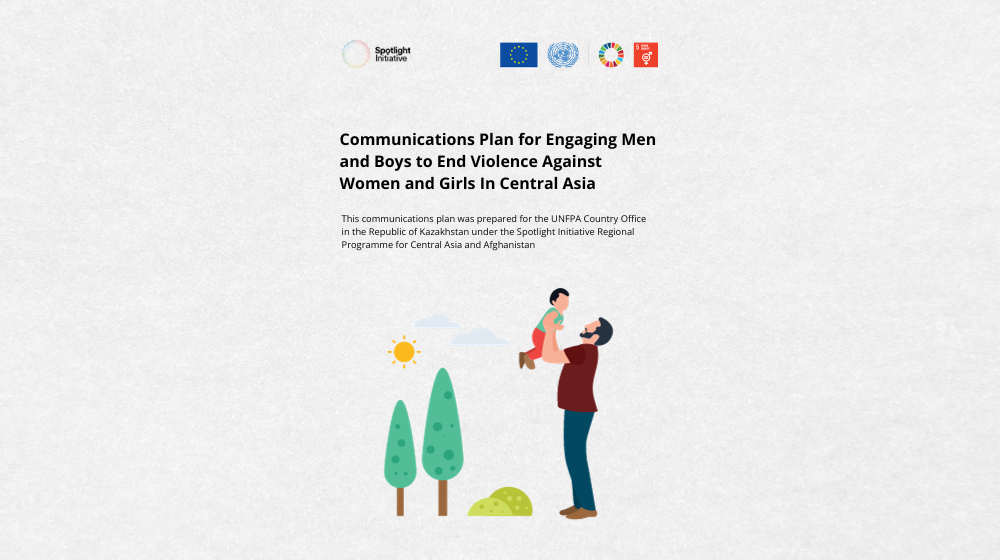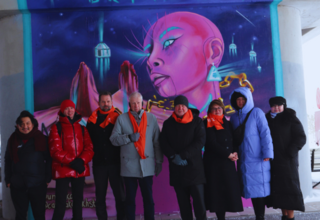The UN Population Fund (UNFPA), the Education Department of the Turkestan region and the have held a round-table meeting to discuss the results of the project “Promotion of Girls’ Empowerment in the Turkestan region”. The project is being carried out in the region with support from the British Embassy Astana.
Equality of women and men is a precondition for advancing development and reducing poverty. Empowered women contribute to the health and productivity of whole families and communities, and they improve prospects for the next generation. Yet no country has fully achieved gender equality, with certain traditions, practices and beliefs posing an impediment to the fulfillment of women’s and girls’ rights in education, career, family and other areas. A video was made in the Turkestan region about the different life opportunities that boys and girls tend to have due to such beliefs.
Turkestan region is the most densely populated region in Kazakhstan, with adolescent birthrate at 30,02 per 1,000 girls aged 15-19 – one of the highest in the country. Among harmful practices violating girls’ human rights and limiting their opportunities in life is child and forced marriages. Such marriages push girls into a vicious cycle of poverty: girls in child marriage often fall pregnant, drop out of school, can’t have a job in future, become poor, develop health problems, fall into dependency on their partner and risk having their own children repeat this pattern. In 2015, 9.3% of girls aged 15-19 were married or in union in the Turkestan region – this is one of the highest figures in Kazakhstan.
A series of events have been held to help empower girls in the Turkestan region within the joint project of the British Embassy in Astana and UNFPA. Project activities included updating the existing valeology course with new chapters on gender equality, prevention of gender-based violence and harmful practices, such as child and forced marriages, promoting family values and responsible parenthood. The updated course was then taught in a test mode to teachers of the Sayram, Saryagash and Maktaaral rayons of the region and to students of several colleges and senior pupils of secondary schools. An awareness-raising campaign was rolled out as part of the project, with a number of posters, leaflets, and a glossary of terms produced for students, parents, teachers and decision-makers.
“By empowering girls we make sure that they grow up to become healthy, strong and independent women, capable of contributing to the sustainable development of their country. Both boys and girls tend to be particularly vulnerable in adolescence. Girls, however, risk facing more difficulties, such as child and forced marriages and early pregnancy. Considering that these challenges are due to a number of reasons, including stereotypes reinforced in childhood, comprehensive sexuality education is a key to promoting gender equality. Valeology is a vital part of such education,” said Representative of UNFPA in Kazakhstan and Country Director in Kyrgyzstan and Turkmenistan Giulia Vallese.
“Nowadays many adults and young people don’t know how to lead a healthy life. As a result, they get infections and fall ill. That’s why all of us should get adequate access to health-related information. Trainings like this one help spread that knowledge. There should be more such trainings to cover as many people as possible,” said a teacher from Sayram rayon Gulnara Manzurova after the course.
Along with topics of sexual and reproductive health the updated Valeology course includes information about the harmful consequences of child and forced marriages. Results of students’ awareness of the negative consequences of such marriages were presented in the round-table meeting.
“The survey after the trial run of Valeology in selected schools has shown that despite the fact that the proportion of students with negative attitude to child and forced marriages has barely changed, the surveyed students’ understanding and awareness of the negative consequences of such marriages has considerably increased. One of the examples is that among the students who took the updated Valeology course the proportion of those who now agree that child marriages can be a source of neurosis and psycho-emotional tension has risen from 41.0% to 75.7%. Similarly, those surveyed who now agree that a mother aged under 18 has a higher risk of death of her child has also grown from 51.0% to 79.1%”, said Assistant Representative of UNFPA in Kazakhstan Raimbek Sissemaliyev.
“Changing beliefs and attitudes takes time. However, the results that we’ve obtained are very promising and they show that with more consistent and long-term efforts and programmes in place, these attitudes can be challenged,” said Raimbek Sissemaliyev.
For more information and any other enquiries please contact UNFPA Communications Specialist Dina Teltayeva at Dina Teltayeva tel.: +7701 765 40 10; e-mail teltayeva@unfpa.org



